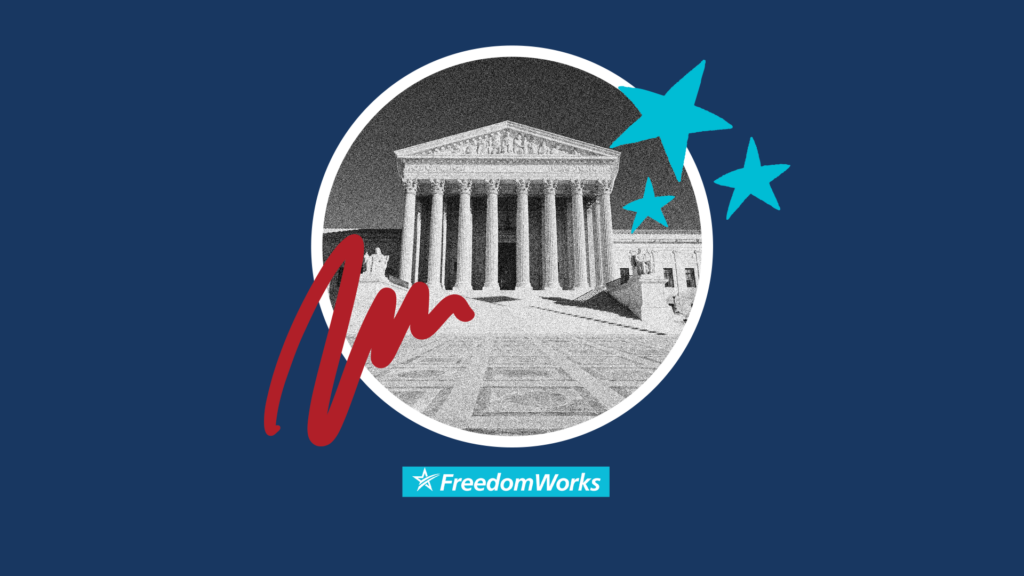Obama’s empathetic judicial poison
Barack Obama’s statement that “empathy” would be a key qualification he’d look for in a nominee to replace David Souter on the Supreme Court is not simply soft liberal thinking, it’s a direct attack on the rule of law, an abrogation of Obama’s oath of office – and entirely consistent with Obama’s prior statements.
Obama’s statement about the process of selecting his nominee included this:
I will seek someone who understands that justice isn’t about some abstract legal theory or footnote in a casebook; it is also about how our laws affect the daily realities of people’s lives, whether they can make a living and care for their families, whether they feel safe in their homes and welcome in their own nation. I view that quality of empathy, of understanding and identifying with people’s hopes and struggles, as an essential ingredient for arriving at just decisions and outcomes.
What Obama is saying here is that the rule of law should be secondary in judicial reasoning to a judge’s own personal feelings. It is nothing short of a recipe for a breakdown of our legal system, and the death of an expectation by participants in court proceedings that they will be treated fairly, particularly if they are not highly sympathetic. For example, a case where someone files a case against an insurance company, where the plaintiff is very sympathetic but the insurance company is in the right. It’s easy to imagine a judge who fits Obama’s description ruling against the insurance company because the plaintiff’s “hopes and struggles” are helped by giving him the insurance company’s money. It’s also easy to imagine everybody’s insurance rates going up the very first time the Supreme Court rules in such a way.
Indeed, Press Secretary Robert Gibbs’ use of the Lilly Ledbetter Supreme Court decision as rationale for requiring “empathy” as a qualification makes my case. Ledbetter’s original claim was thrown out by an appeals court and then again by the Supreme Court because she filed her claim after the deadline for such claims. While people might have legitimate disagreement with where the deadline was set in law, any remedy should be done through legislation. Arguing that the courts should have allowed her claim because “the ramifications are important” despite the clear letter of the law is tantamount to saying there is no law.
Obama’s erroneous thinking about the rule of law has been consistently represented through his own words. Going back to his 2001 Chicago radio interviews in which he implied that the Supreme Court should be more active in redistributing wealth to his campaign statement that “I want my justice to understand that part of the role of the court is to look out for the people who don’t have political power.”
Obama is wrong. The courts should be blind to the political power of the plaintiffs and should rule based on the law. “Judicial activism”, a popular phrase of derision by the right about courts doing things like overturning multiple voter-passed referenda banning gay marriage, can also happen by conservative judges. However, while it’s less frequent, conservative judicial activism is also possible, such as regarding social issues. If I support judicial activism that reaches a result I like, I lose any moral standing to challenge future court over-reaching that comes to a decision I don’t like. That’s why I oppose Roe v. Wade. The Supreme Court tortured the Constitution to get to an outcome they wanted to reach. While I like that outcome, since I’m pro-choice, I can’t support the decision because the next time the Court could just as arbitrarily reach the opposite decision, or some other decision which I oppose by finding a non-existing “right”.
The sort of activism which is a direct product of ruling based on “empathy” rather than the rule of law is an unvarnished long-term negative for the nation. The proper functioning of a society and an economy absolutely requires a government which can be relied on to the greatest extent possible not to change the rules of the game simply depending on how much a bureaucrat or judge likes or dislikes a person, organization, or company. Decisions are made, money spent, and people are hired, based on understanding the law. If a judge’s “empathy” leads him to say that the law shouldn’t apply in this case it is an arrow aimed at the heart of our nation’s legal system and its economy.
Again, the word “law” implies something solid and essentially not subject to opinion. The idea that “empathy” is an important part of a jurist’s approach, particularly someone who would serve on the nation’s highest court, is, despite its pretty sound, repugnant. It is poison to our nation, but we can’t say we weren’t warned by Obama himself that it’s the poison he intended to inject into us if he got the chance.




